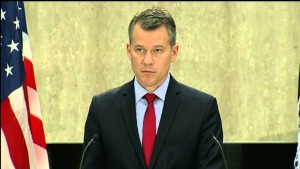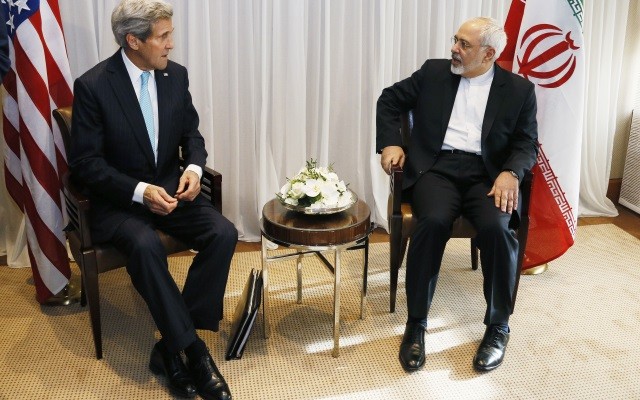Israel denies reports that it had used malicious software to spy on the nuclear talks between the P5+1 nations and Iran.
By: AP and World Israel News Staff

Deputy Foreign Minister Tzipi Hotovely. (Flash90)
Israel officially denied on Thursday reports that it used cyber-espionage computer viruses to spy on the nuclear negotiations between Iran and the P5+1 powers.
Speaking to Israel’s IDF Radio, Deputy Foreign Minister Tzipi Hotovely said that there was no factual basis to the report that Israel was spying on the talks. She said the focus should be on stopping a “bad deal” with Iran, otherwise “we will find ourselves with an Iranian nuclear umbrella.”
The international incident began when a cyber-security firm with close ties to Russian intelligence said Wednesday it uncovered a cyber-espionage campaign targeting hotels that hosted Iran nuclear negotiations, the details of which are among the most closely held secrets in world diplomacy.
The firm, Kaspersky, said the malware was so sophisticated that it must have been created by a government. Citing former US intelligence officials, the Wall Street Journal attributed the spying to Israel, which opposes the emerging nuclear deal being hammered out by the US, Russia, several other European countries and Iran. Negotiators hope to clinch an agreement by the end of June to curb Iran’s nuclear activity for a decade in exchange for billions of dollars in sanctions relief.
A former senior US intelligence official who dealt with such matters told the Associated Press that the nuclear talks are a likely espionage target of several countries, including Israel and Russia. The former official said he couldn’t be quoted on the record and demanded anonymity.
Kaspersky’s cyber-spying discoveries are taken seriously by security experts, and the US antivirus company Symantec confirmed Kaspersky’s technical findings Wednesday, though not the source of the campaign.
In a statement, the company said it began investigating an intrusion into its own systems earlier this year, a probe that led it to discover “one of the most skilled, mysterious and powerful threat actors” in the world of cyber-spying. The malware is a more advanced version of an attack it previously discovered, dubbed “Duqu,” the company said.
The malware used three “zero day” vulnerabilities, which are flaws in Microsoft’s operating system that were previously unknown and therefore undefended. Each one can cost as much as $300,000 on the black market.
US ‘Takes Steps’ to Ensure Confidentiality
Responding to the report, State Department spokesman Jeff Rathke said that the US was “not going to weigh in” on the report, but added that the “we [the US] take steps, certainly, to ensure that confidential, that classified negotiating details stay behind closed doors in these negotiations.” He refused to comment further on the possibility that negotiating tactics, strategies, details of the U.S. delegation or other issue were compromised.
“We are always mindful of the need to keep – to take steps to keep our discussions confidential,” he repeated.

State Department spokesman Jeff Rathe. (Youtube)
The US delegation likely would not have used hotel computer systems or unsecured phones to discuss details of the negotiations. Kaspersky did not identify the hotels, though most talks have taken place in Austria and Switzerland.
Spyware also was found to have targeted people attending the 70th anniversary event of the liberation of Poland’s Auschwitz-Birkenau death camp, Kaspersky said.
In the meantime, highlighting ongoing American intelligence concerns about the deal with Iran, the former chief of the Defense Intelligence Agency told a House subcommittee Wednesday that the proposed deal “suffers from serious deficiencies,” including the intelligence community’s inability to verify full Iranian compliance.
“The intelligence community does not have complete ‘eyes on’ the totality of the Iranian nuclear program, nor can it guarantee that we have identified all of Iran’s nuclear facilities and processes,” Michael Flynn testified. He said it was prudent to conclude “that there are elements of Iran’s nuclear program that still remain hidden from view.”





